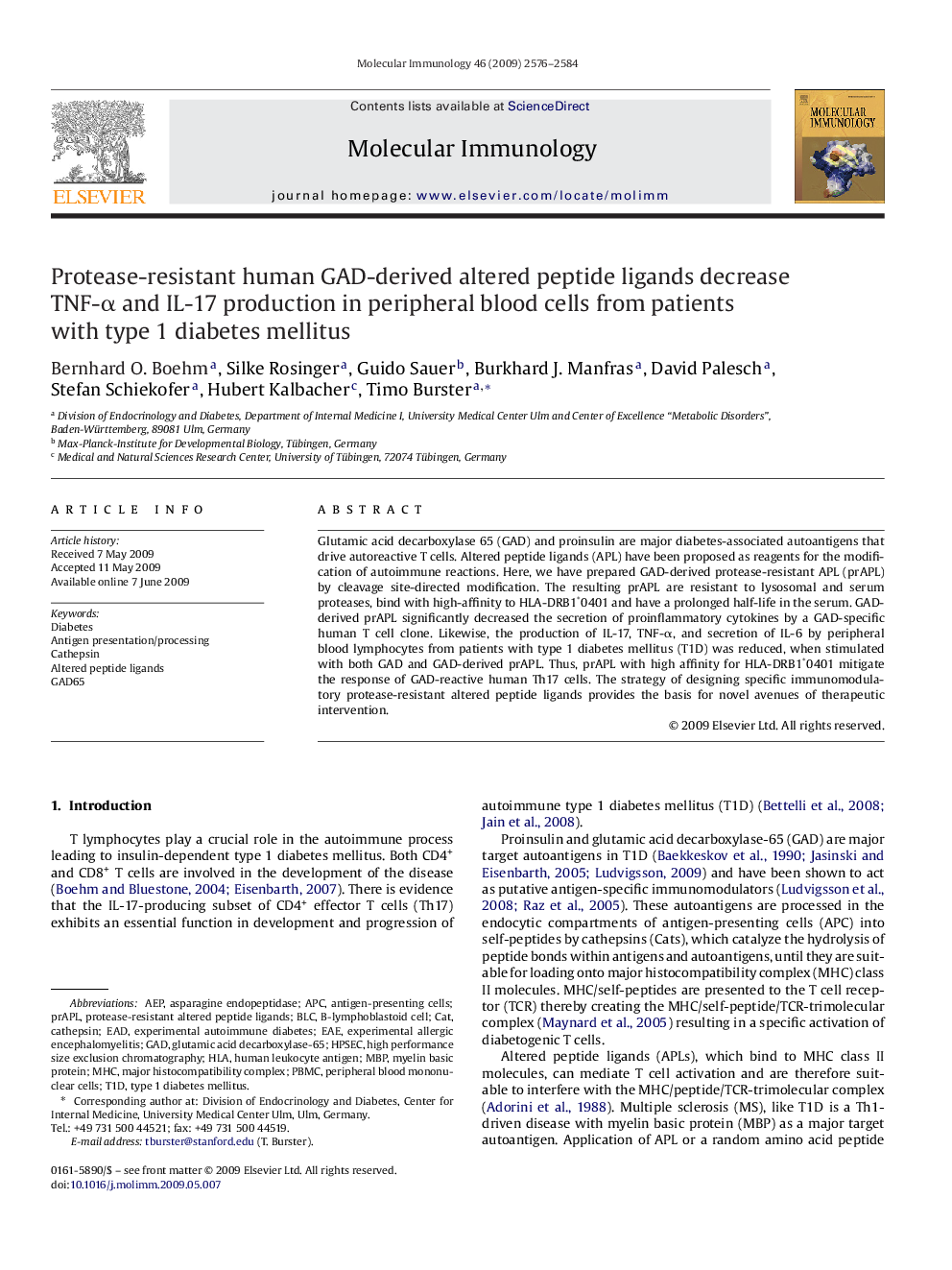| کد مقاله | کد نشریه | سال انتشار | مقاله انگلیسی | نسخه تمام متن |
|---|---|---|---|---|
| 2831398 | 1163804 | 2009 | 9 صفحه PDF | دانلود رایگان |

Glutamic acid decarboxylase 65 (GAD) and proinsulin are major diabetes-associated autoantigens that drive autoreactive T cells. Altered peptide ligands (APL) have been proposed as reagents for the modification of autoimmune reactions. Here, we have prepared GAD-derived protease-resistant APL (prAPL) by cleavage site-directed modification. The resulting prAPL are resistant to lysosomal and serum proteases, bind with high-affinity to HLA-DRB1*0401 and have a prolonged half-life in the serum. GAD-derived prAPL significantly decreased the secretion of proinflammatory cytokines by a GAD-specific human T cell clone. Likewise, the production of IL-17, TNF-α, and secretion of IL-6 by peripheral blood lymphocytes from patients with type 1 diabetes mellitus (T1D) was reduced, when stimulated with both GAD and GAD-derived prAPL. Thus, prAPL with high affinity for HLA-DRB1*0401 mitigate the response of GAD-reactive human Th17 cells. The strategy of designing specific immunomodulatory protease-resistant altered peptide ligands provides the basis for novel avenues of therapeutic intervention.
Journal: Molecular Immunology - Volume 46, Issue 13, August 2009, Pages 2576–2584